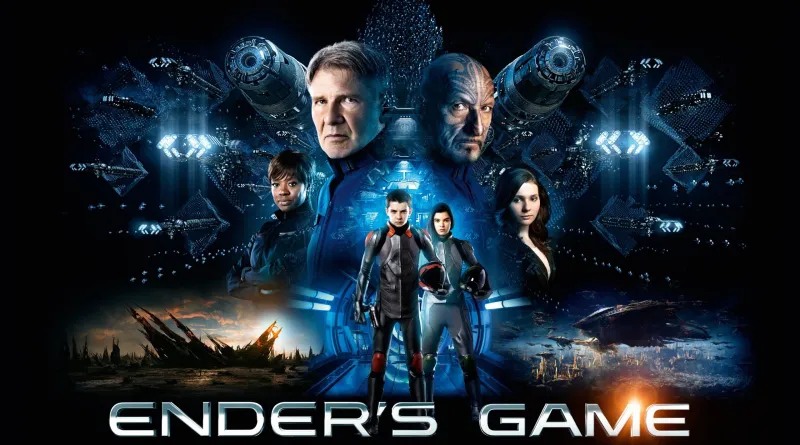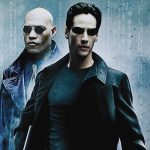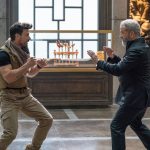Ender’s Game (2013)

Released in 2013 and directed by Gavin Hood, “Ender’s Game” is a science fiction film adaptation of Orson Scott Card’s acclaimed novel of the same name. Starring Asa Butterfield as Ender Wiggin, Harrison Ford, and Viola Davis, the film explores themes of leadership, strategy, and the ethics of war. Set in a future where humanity faces an imminent alien threat, the film offers a thought-provoking narrative that combines thrilling action with deep philosophical questions. This essay delves into the film’s plot, character development, visual style, thematic depth, and its overall impact on the sci-fi genre.
“Ender’s Game” is set in a future where Earth has narrowly survived an alien invasion by a species known as the Formics or “buggers.” The film follows young Ender Wiggin, a brilliant but socially challenged child recruited into a military training program designed to prepare the next generation of commanders for an anticipated second wave of Formic attacks.
The narrative begins with Ender being selected for this elite program due to his exceptional strategic mind. He is taken to Battle School, a space station where children are trained in the art of war through simulated battles and rigorous exercises. Ender quickly rises through the ranks, demonstrating both tactical brilliance and the ability to lead his peers.

The story culminates in a series of simulated battles that test Ender’s skills and resolve. The final simulation, however, reveals a shocking truth about the nature of the war and the consequences of Ender’s strategies. The film explores the moral and emotional weight of Ender’s decisions and the impact of leadership under extreme pressure.
Asa Butterfield’s portrayal of Ender Wiggin is central to the film’s emotional and thematic impact. Butterfield brings a depth of intelligence, vulnerability, and complexity to the character, capturing Ender’s inner conflicts and growth throughout the film. His performance reflects Ender’s struggle with his role as a leader and his moral dilemmas regarding the use of force.
Harrison Ford plays Colonel Graff, the commanding officer responsible for overseeing Ender’s training. Ford’s portrayal adds a layer of gravitas and authority to the film, highlighting the complexities of military leadership and the pressures faced by those in positions of power. Graff’s character is instrumental in shaping Ender’s development and in presenting the ethical challenges of the training program.

Viola Davis plays Major Gwen Anderson, a key figure in the Battle School who supports and mentors Ender. Davis’s performance provides a counterbalance to the more authoritarian figures in the film, emphasizing the human element and the moral considerations of the training process.
The supporting cast, including Abigail Breslin as Ender’s sister, Valentine, and Ben Kingsley as the enigmatic Mazer Rackham, further enriches the film’s narrative. Each character contributes to the exploration of themes related to leadership, sacrifice, and the consequences of war.
Gavin Hood’s direction and the cinematography of Donald McAlpine create a visually striking and immersive experience. The film’s visual style combines futuristic technology with a sense of realism, capturing the high-tech environment of Battle School and the expansive nature of the space battles.
The use of CGI and special effects is integral to the film’s depiction of space combat and simulation environments. The design of the Battle Room, with its zero-gravity battles and strategic maneuvering, is particularly noteworthy for its innovative approach to depicting combat scenarios. The visual effects enhance the film’s sense of scale and intensity, immersing the audience in Ender’s world.

The film’s pacing and editing contribute to its dynamic and engaging narrative. The balance between action sequences and character development allows for a compelling exploration of the themes while maintaining a thrilling and suspenseful tone.
“Ender’s Game” explores several themes that resonate deeply with its audience, including leadership, the ethics of war, and the loss of innocence. The film examines the nature of leadership through Ender’s journey, highlighting the challenges of commanding others and the impact of strategic decisions on both individuals and societies.
The ethical implications of war and the use of simulation as a training tool are central to the film’s narrative. The film raises questions about the morality of using children as soldiers and the consequences of treating war as a game or simulation. Ender’s realization about the true nature of the final simulation underscores the moral complexities of warfare and the heavy burden of leadership.
Another theme explored in the film is the concept of empathy and its role in leadership. Ender’s ability to understand and relate to his enemies is portrayed as a key factor in his success. The film suggests that true leadership involves not only strategic brilliance but also the capacity for compassion and understanding.

“Ender’s Game” received generally positive reviews from critics and audiences, with praise for its visual effects, performances, and faithful adaptation of the source material. The film’s exploration of complex themes and its depiction of futuristic warfare contributed to its impact as a thought-provoking and entertaining sci-fi film.
While some critics noted deviations from the novel and the challenges of adapting a complex story to the screen, the film’s success in capturing the essence of Orson Scott Card’s work and its relevance to contemporary discussions about leadership and ethics were widely acknowledged.
The film’s impact extends beyond its entertainment value, serving as a catalyst for discussions about the morality of war and the role of leadership in challenging situations. It remains a notable entry in the sci-fi genre for its blend of action, strategy, and philosophical inquiry.
“Ender’s Game” (2013) is a compelling and thought-provoking sci-fi film that combines action, strategy, and philosophical exploration. Directed by Gavin Hood and featuring strong performances from Asa Butterfield, Harrison Ford, and Viola Davis, the film offers a powerful adaptation of Orson Scott Card’s novel. Its exploration of leadership, ethics, and the nature of warfare ensures its place as a significant contribution to the genre, providing both thrilling entertainment and a deep examination of complex themes.










